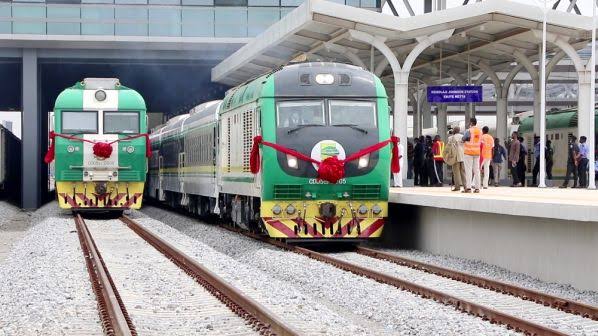The Ministry of Transport has entered into a Memorandum of Understanding (MoU) with Messrs MPH Rail Development Limited, a United Kingdom company, for the implementation of the Port Harcourt–Enugu–Calabar–Abuja Standard Gauge Rail Line project under a public-private partnership framework.
This development was announced in a statement released on Friday on the ministry’s website.
According to the MoU, the UK firm will oversee the design, construction, commissioning, operation, and eventual transfer of the Port Harcourt–Enugu–Calabar–Abuja Standard Gauge Rail Line.
The signing of the MoU follows the approval of the Outline Business Case and the issuance of a compliance certificate by the Infrastructure, Concession, and Regulatory Commission.
Related News: Arsenal’s Position at Top of Premier League a Testament to Performance, Says Arteta
This clearance enables Messrs MPH Rail Development Limited to proceed with compiling the necessary documentation for Federal Executive Council approval to advance the project.
The MoU signing ceremony was attended by the Minister of Transportation, Senator Said Alkali, the Permanent Secretary of the Ministry of Transportation, Olufemi Oloruntola, along with other key officials.
Minister Alkali reiterated the ministry’s commitment to supporting the successful implementation of the project and emphasized the importance of diligent preparation and submission of all requisite documents to expedite FEC’s approval.
As part of efforts to advance railway modernization projects in line with the Renewed Hope Agenda of President Bola Ahmed Tinubu’s administration, the MoU aims to facilitate the construction of the Port Harcourt–Enugu–Calabar–Abuja Standard Gauge Rail Line on a Public–Private Partnership basis.
The ministry highlighted the essential documents required for the project’s progression, including a comprehensive feasibility study report, a complete Business Case Study, an Environmental and Social Impact Assessment, the development of a Resettlement Action Plan, and the formulation of a Financial Model to facilitate project implementation.
This initiative ensures that the project’s transfer to the federal government under a PPP arrangement occurs without incurring loans or debts for the Nigerian government or its agencies.
You can also read: Niger to Distribute 7,079 Bags of Assorted Grains for Ramadan, Plan N976 Million Budget


